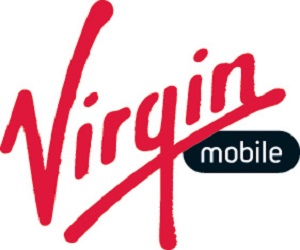Johnson & Johnson To Phase Out Some Toxic Chemicals From Its Products
By Gina-Marie Cheeseman
Johnson & Johnson (J&J), one of the largest companies in the world, announced on August 15 that it will phase out several toxic chemicals from its baby and adult products. J&J will also limit the amounts of two other chemicals. The company whose products are in 57 countries will phase out the chemicals by the end of 2015. Specifically the company will reduce 1,4 dioxane to a maximum of 10 parts per million in adult products, and phase out formaldehyde-releasers in adults products. J&J will also limit parabens in adult products to methyl-, ethyl-, and propyl-, and completely phase-out triclosan, Diethyl Phthalate (DEP) and polycyclic musks from all products.
http://safecosmetics.org/article.php?id=1054
This is a significant development given the sheer size of J&J and the health problems associated with the chemicals. Formaldehyde and 1,4 dioxane cause cancer in animals, and the U.S. National Toxicology Program recently classified formaldehyde as a human carcinogen. Phthalates, parabens, triclosan and polycyclic musks are hormone disruptors and have been linked to other health problems including birth defects, diabetes, obesity and breast cancer. Unfortunately, all parabens are not being eliminated from J&J products, despite the health problems associated with them.
Last November J&J announced its commitment to remove 1,4 dioxane and formaldehyde from its baby products by the end of 2013. This announcement came after the campaign by a coalition of organizations, including Campaign for Safe Cosmetics for toxic ingredients to be removed from J&J baby products. The campaign included a boycott of J&J products. The coalition is urging other companies to follow J&J’s lead, including L’Oreal, Proctor & Gamble, Avon and Unilever.
The problems with J&J’s Natural baby care line J&J has launched Johnson’s Natural baby products line. All three products in the Johnson’s Natural baby line are do not contain 1,4 dioxane, chemicals that release formaldehyde, and parabens. There is a problem with the baby wash and shampoo. Both contain sodium coco sulfate, and sodium hydroxide. Both have health concerns. Let’s start with sodium coco sulfate, which is basically the same as sodium lauryl sulfate (SLS). SLS is a skin and eye irritant, and can cause eye damage, particularly in children and babies. The Material Safety Data Sheet (MSDS) for SLS by Science Lab states that SLS is “hazardous in case of skin contact (irritant), of eye contact (irritant), of ingestion, of inhalation…severe over-exposure can result in death…repeated or prolonged exposure to the substance can produce target organs damage.”
http://www.sciencelab.com/msds.php?msdsId=9925002
Now let’s move on to sodium hydroxide. The MSDS for sodium hydroxide states that it is “very hazardous in case of skin contact (corrosive, irritant, permeator), of eye contact (irritant, corrosive), of ingestion, of inhalation…eye contact can result in corneal damage or blindness…skin contact can produce inflammation and blistering.” In addition, the MSDS also states that sodium hydroxide “may be toxic to mucous membranes, upper respiratory tract, skin, eyes…repeated or prolonged exposure to the substance can produce target organs damage…repeated skin exposure can produce local skin destruction, or dermatitis.”
http://www.sciencelab.com/msds.php?msdsId=9924998
Having read the health concerns associated with sulfates and sodium hydroxide, does anyone really want to expose their baby to them? If J&J really wants to release a natural product line it would eliminate all toxic ingredients.
What are your thoughts?


Many parents underestimate the sensitivity of their child’s skin. While it may be tempting to save money and use the same dry skin care products on your baby’s skin as you would on your own, this can cause serious problems. Imagine using bar soap on the sensitive skin of your face as compared to a specialty product designed for the chemistry of your skin. It would likely end up causing you a great deal of discomfort. The same thing would happen to your baby’s skin if you were to consistently use products geared for adults to cleanse it. An unhappy baby can be a very loud baby, and dry skin can make babies incredibly unhappy.,